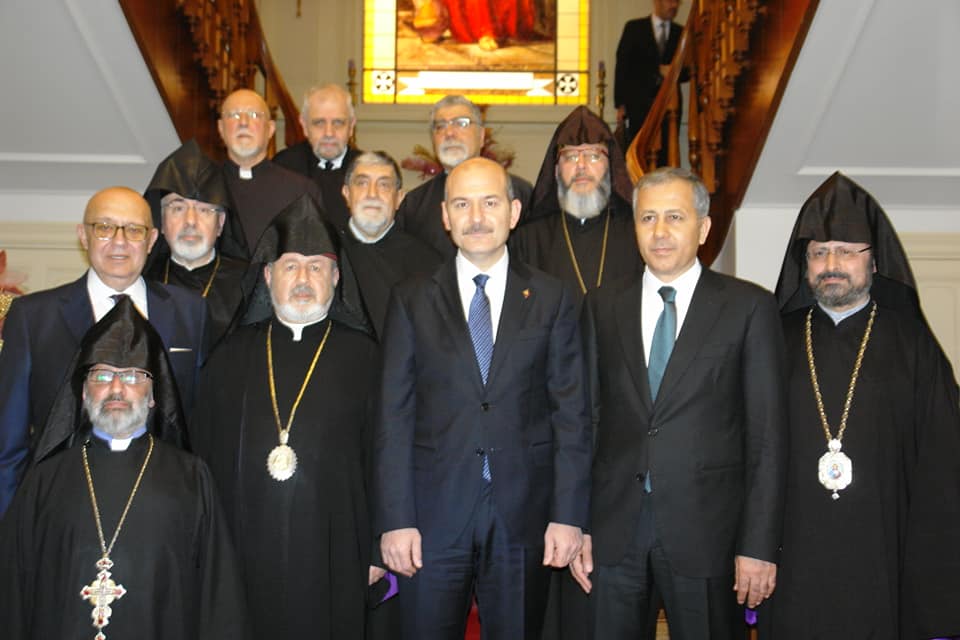
With the end of mourning period that was declared following the passing away of Mesrob II Mutafyan on 8 March 2019, Turkish Armenians have begun the process of electing their new patriarch. In this framework, the Degabah (trustee/locum tenens, traditionally known as patrik kaymakamı in Turkish) election was held on 4 July to identify the administrator of the election process of the new patriarch and as a result Bishop Sahak Mashalyan was elected to fulfill this duty.[1] Archbishop Aram Ateshiyan, who had assumed the office of General Vicar (Acting Patriarch) throughout the illness of the late Patriarch Mesrob II Mutafyan, left his office and became the Head of the Clerical Council of the Armenian Patriarchate of Istanbul. Following consultations held with state authorities, 11 December 2019 was set as the day for the patriarch election. The most recent official development has been the Patriarch Election Guideline that was sent by the Ministry of the Interior to the Patriarchate on 23 September.[2]
In the time that passed up until the passing away of Mesrob II, various disputes emerged within Turkish Armenians regarding the administration of the Armenian Patriarchate of Istanbul and the patriarch election and there were some foreign attempts to intervene in these issues.[3] Similarly to that period, the period following to release of the Guideline too has been witnessing various disputes on the same subject. What lays at the center of these disputes is the criterium of “being a member of the bishops particular to the Armenian Patriarchate of Istanbul”, which is stipulated in Article 25.C of the Guideline. It is stressed that this expression had not been written in any of the previous guidelines on patriarch elections in the era of the Republic of Turkey. The meaning and the possible impact of this expression on patriarch candidates is the subject of an ongoing debate. According to the dominant view, however, this expression envisages that a candidate must be cleric of the Armenian Patriarchate of Istanbul and must be actively serving in Turkey. In the context of these criteria, there are two people who can be candidates in the patriarch election to be held on 11 December: Archbishop Aram Ateshian and Bishop Sahak Mashalyan.[4]
People who are against the current version of the guideline claim that the mentioned article prevents about ten natural candidates from participating in the election and thus highly limits the list of candidates. In addition, it is claimed that this guideline will set a problematic precedent for the future due the following reasons: the Armenian Patriarchate of Istanbul has no monastery that trains new generation of clerics, clerics wishing to obtain the title of bishop are thus forced to apply the Armenian Catholicosate of Etchmiadzin in Armenia, and clerics who had served as the Armenian Patriarch of Istanbul in the past had previously been serving abroad. In this framework, concerns are being raised that the Turkish Armenians will face difficulties in identifying new patriarch candidates in the oncoming years. In the light of all abovementioned issues, people who criticize the Guideline dwell on the following possibilities: 1) Having a correction made on the Guideline through an objection filed to the Ministry of Interior, 2) Filing a lawsuit about the Guideline (meaning, suing the Ministry of Interior), and 3) Rendering individuals, who are not eligible to become candidates within the framework of the current guideline, suitable according to Article 25.C by resorting to certain administrative “craftiness” through the Armenian Patriarchate of Istanbul.
Meanwhile, there have been provocative remarks from people whose names had previously been mentioned as patriarch candidates. One of them is Archbishop Karekin Bekchian. During his tenure as the spiritual leader of the Armenians in Germany, Bekchian was chosen in a fait accompli manner as the Degabah on March 2017 in an election held at the Armenian Patriarchate of Istanbul. In the period following this election, with a Diaspora-based aggressive mindset, he tried to initiate a power struggle against the Turkish state and announced himself as a patriarch candidate for that term. Even though it is not possible for him to be a candidate according to the Article 25.C of the 2019 Election Guideline, Bekchian stated that he is, in fact, eligible to be a candidate but that he has withdrawn his candidacy in the name of solidarity with other natural patriarch candidates whose rights he claims have been violated. Bekchian also urged the other remaining candidates to withdraw their candidacy.
The spiritual leader of the Gugark region of the Armenia Sebuh Chouljian, who was considered as a patriarch candidate in the past, also made the following announcement: “They are preventing the participation of clerics working abroad in order to prevent me. So, I withdraw my candidacy in order to defend the rights of my spiritual brethren.”[5] However, the unfounded nature of Chouljian’s statement can be understood from one of our previous evaluations regarding him:
“The candidate that is most unlikely to be elected is Archbishop Chouljian, as he is not known in Turkey like the other candidates. Moreover, due to the long-standing tension in Turkey-Armenia relations, it is not likely for many voters to want to bring Chouljian to the top of a deeply-rooted institution of Turkey such as the Armenian Patriarchate of Istanbul.”[6]
The Enterprising Committee, which is tasked with administrating the patriarch election process together with Degebah Bishop Mashalyan, held a consultation meeting with the officials of the foundations of Turkish Armenians and clerics of the Patriarchate regarding the 2019 Election Guideline on 3 October. As a result, despite all the counter proclamations and unfounded claims, the Enterprising Committee approved the validity of the Guideline and decided not to apply to the official authorities in this regard. As expected, this decision was harshly criticized by some circles, such as AGOS, which have the anti-Turkey mindset of diaspora Armenians. However, the decision, from what can be gathered from the reporting of the press, is final and the patriarch election will take place with two candidates. In this context, Archbishop Ateshian and Bishop Mashalyan have launched their election campaigns.
Even though the Degebah Bishop Mashalyan considers some parts of the election guideline as faulty, he made some statements and reminders via his personal Facebook account in response to criticisms regarding the holding elections with the present guideline.[7] These statements and reminders are important in understanding the current situation:
“[…] The discussion [about the Guideline] was about ‘should an objection be made or not, and which one’s outcome would be more beneficial?’. There can be no discussion with only one thesis. There must be at least two opinions. […] The second opinion forecasts that if we object, then the election process may be unpredictably prolonged. In such a case, we may not be able to hold elections for years to come. Neither our community nor the system has any more tolerance left for the absence of the patriarch. We should proceed to the election with the three candidates foreseen by the Guideline [Mashalyan interestingly included Karekin Bekchian as well] and look ahead as a community, start to resolve our accumulating and growing problems without further delay. In the republican period [of Turkey], elections were held with no more than two candidates, and there were even instances with one candidate. The guidelines are issued just for once and in accordance with the needs of time. As it was the case in the past, conveniences will be provided for future guidelines.
[…] The official authorities had very positive and constructive dialogue with the Enterprising Committee, especially with the head of the Committee, throughout the process of preparing the Guideline. […] It was insistently stated that the condition of 'being a member of the bishops particular to the Armenian Patriarchate of Istanbul', which was among the conditions of becoming patriarch according to 1863 Regulation, would cause problems for our clerics and people and they would certainly object to it. Therefore, we reiterated that this condition should be revised in accordance with the spirit of the previous guidelines. The final response of the official authorities was that this rule was purposefully included, that it was the will of the highest authorities in the state, and it was non-negotiable. Following the issuing of the guideline, it was asked what their reaction would be in case of an objection towards this document. Beyond being negative, the response was quite harsh. It was clearly stated that it was not possible for there to be any other Guideline.
[…] Objection [to the Guideline] was not that easy. It would have had to be done in written form. The election process would have been stalled with the objection petition and the process would have been suspended until the response. If no response would have been issued to our objection in the proceeding 60 days, another 60 days would have had to be waited, and after that, if there was still no response, then a judicial process would have been initiated. In other words, a lawsuit would have been filed and the Ministry of Interior would thus have been sued. We had an experience over this kind of a lawsuit. It would have been resolved in at least eight years!
[…] The truth is, if it was possible to participate in the election through the condition of 'being Turkish from one’s father [being the child of a Turkish-citizen man]', only one Bishop outside from our Patriarchate would have participated. This is the practical truth of the matter. However, some voices from amongst us who have been captivated by the charm of theory want claims of exaggerated candidate rights to be paid by us by remaining without a Patriarch for several more years. Nine of the potential candidates are not even considering become patriarch candidates. They never have. They did not engage in any of the previous elections either. If they had such intentions, they would have occasionally been here somehow. Let us be honest, they, in fact, do not have any obligation to serve us anyway. Most of them are not appropriate for candidacy due to their age and are retired. […]
[…] Whether intentionally or not, Srpazans [religious officials] Karekin [Bekchian] and Sebouh [Chouljian] present us the deadlock [concerning the patriarch election] as the solution. We cannot take the risk of a period of chaos and waiting which will last for years and which will have an indeterminate end.
We cannot give up on our tangible right of electing a Patriarch on 11 December in the name of an open-ended intangible 'right to legal remedies.' […] We will hold this election with the common sense of people who assume responsibility. The ill fate of us Istanbul Armenians has always been not to be understood by the other Armenians of the world. From afar, they have always been advising us on how to be Armenian. […] When they do not reach their desired outcome, they lecture us and harangue us on honor, cowardice, and bravery. Now they are trying to teach us a lesson on how to be clerics. We do not expect them to understand us. We should understand each other, that will suffice.”
As can be understood, there will be two candidates in the Armenian Patriarch Election on 11 December 2019. This election process, as it has been the case in the past, will be concluded through the consultations between the Armenian Patriarchate of Istanbul officials and state officials. Furthermore, as can be understood from the remarks of Degebah Bishop Mashalian, the Article 25.C of the Guideline that has caused disputes was intentionally included in accordance with the concerns of the State. When the incidents and disputes throughout the illness of the late Patriarch Mesrob II are examined, by taking precautions and including Article 25.C, official authorities have sought to prevent individuals who may have engaged in an exhaustive quarrel with the State to become patriarch candidates. In this regard, it will be appropriate to mention a previous analysis of ours:
“It should not be forgotten that the Armenian Patriarchs of Istanbul, who are one of the four highest ranking officials of the Armenian Apostolic Church, have never been solely spiritual leaders; they have been among the prominent opinion leaders of the Armenian community. In this framework, through their opinion leadership, the Armenian Patriarchs of Istanbul have also gained political power beyond their religious authority (this fact is also acknowledged by Armenian writers). In this regard, the person to be elected as the Armenian Patriarch of Istanbul should, on the hand, be able to serve the religious needs of the Armenian community and provide spiritual leadership. On the other hand, the Patriarch should be a prudent person with a constructive approach who can carry out his duties in unison with government officials.”[8]
Moreover, it should be noted that the inclusion of the Article 25.C into the 2019 Election Guideline does not constitute an obligation with regards to including similar articles in the future guidelines. Throughout the history of Republic of Turkey, election guidelines were released only for the election at hand and for once only in accordance with the then-current concerns and needs of Turkey.
Lastly, when the process of the Istanbul Armenian Patriarch election and related disputes are considered, it is understood that there are two works that may be beneficial to carry out following the election of patriarch on this December:
1) As every temporary guideline that was released during the election periods has caused disputes within the Turkish Armenian community, the officials of the Armenian Patriarchate of Istanbul and Armenian foundations together with the opinion leaders and official authorities should meet and form a permanent Patriarch Election Regulation that satisfies as much as possible all the related parties.[9] Since the Armenian Patriarchate of Istanbul has no legal personality, the characteristic of a regulation that will establish such a personality should be investigated within the scope of administrative law.
2) The establishment of a monastery in Turkey to meet the need of training religious officials for the Armenian Patriarchate of Istanbul and to strengthen the Patriarchate against foreign intervention. In this way, for instance, Turkish Armenian religious officials who want to be granted the title of bishop would not have to go to Armenia and the list of patriarch candidates can more easily be formed from the religious officials who have been trained and serve in Turkey.
* Photograph: A souvenir photograph taken with Armenian Patriarchate of Istanbul officials by Turkish Minister of Interior Süleyman Soylu during his visit to the Patriarchate on 13 May.
** This is the translation by Selim Seçkin of a Turkish-language article that was originally published by AVİM on 30 October 2019.
[1] Abdurrahman Tufan Kaya, “The Turkish Armenians' Patriarch Election Process,” Center for Eurasian Studies (AVİM), Blog No: 2019/50, July 16, 2019, https://avim.org.tr/Blog/THE-TURKISH-ARMENIANS-PATRIARCH-ELECTION-PROCESS-16-07-2019
[2] For the full text of the Guideline (in Turkish), please see: “İstanbul Ermeni Patrikliği Patrik Seçim Talimatnamesi (Tam Metin),” HyeTert.org, 23 Eylül 2019, https://hyetert.org/2019/09/23/istanbul-ermeni-patrikligi-patrik-secim-talimatnamesi-tam-metin/
[3] AVİM, “The Passing Away Of The Armenian Patriarch Of Istanbul Mesrop II And The New Patriarch Election Process,” Center for Eurasian Studies (AVİM), Commentary No: 2019/26, March 27, 2019, https://avim.org.tr/en/Yorum/THE-PASSING-AWAY-OF-THE-ARMENIAN-PATRIARCH-OF-ISTANBUL-MESROP-II-AND-THE-NEW-PATRIARCH-ELECTION-PROCESS
[4] See for example: Ohannes Kılıçdağı, “Mahsusluk ve mahsusçuktan seçim,” Agos, 4 Ekim 2019, p. 5.
[5] “Başepiskopos Çulciyan: ‘Sorun Bensem adaylığımı geri alıyorum’,” Agos, 25 Ekim 2019, p. 3.
[6] Mehmet Oğuzhan Tulun, “The Election Process of the Armenian Patriarch of Istanbul Has Been Reset,” Center for Eurasian Studies (AVİM), Analysis No: 2018/12, May 9, 2018, https://avim.org.tr/en/Analiz/THE-ELECTION-PROCESS-OF-THE-ARMENIAN-PATRIARCH-OF-ISTANBUL-HAS-BEEN-RESET
[7] Sahak Mashalian, “Değabah Sahak Srpazan Maşalyan İle Gündem Üzerine…,” Facebook post, October 23, 2019, https://www.facebook.com/sahak.mashalian/posts/10157228509172012
[8] Tulun, “The Election Process Of The Armenian Patriarch Of Istanbul Has Been Reset.”
[9] Many texts have been written by the Turkish Armenian community in this regard. See, for example: Sarkis Adam, “Patrik seçimi sürecine yararlı olabilecek öneriler,” Luys, Sayı 99, 15 Temmuz 2017, p. 15.
© 2009-2025 Center for Eurasian Studies (AVİM) All Rights Reserved
No comments yet.
-
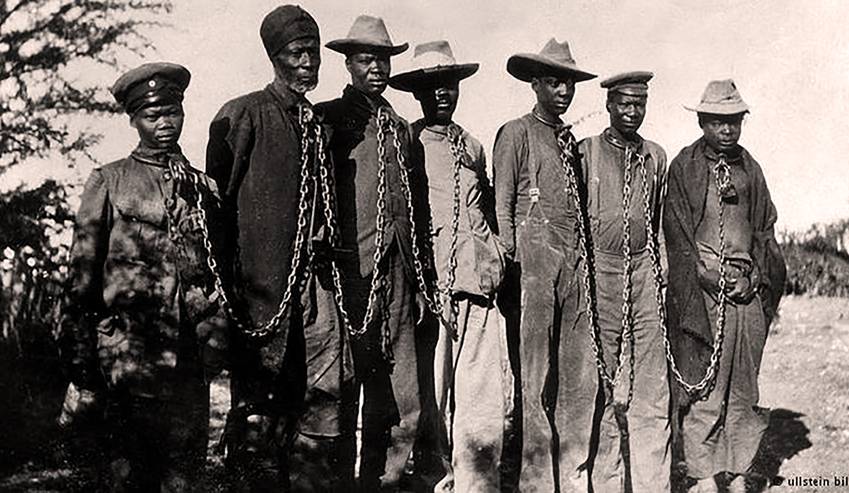 GENOCIDE AND GERMANY
GENOCIDE AND GERMANY
Mehmet Oğuzhan TULUN 10.01.2017 -
 GENOCIDE ALLEGATIONS, PROPAGANDA MOVIES, AND A 90-MILLION-DOLLAR FIASCO
GENOCIDE ALLEGATIONS, PROPAGANDA MOVIES, AND A 90-MILLION-DOLLAR FIASCO
Mehmet Oğuzhan TULUN 14.07.2020 -
 CHURCH INTERFERENCE IN ARMENIA’S NORMALIZATION POLICIES
CHURCH INTERFERENCE IN ARMENIA’S NORMALIZATION POLICIES
Mehmet Oğuzhan TULUN 14.08.2024 -
 OUTSIDE INTERVENTION TO THE ELECTION OF THE ARMENIAN PATRIARCH OF ISTANBUL
OUTSIDE INTERVENTION TO THE ELECTION OF THE ARMENIAN PATRIARCH OF ISTANBUL
Mehmet Oğuzhan TULUN 15.03.2017 -
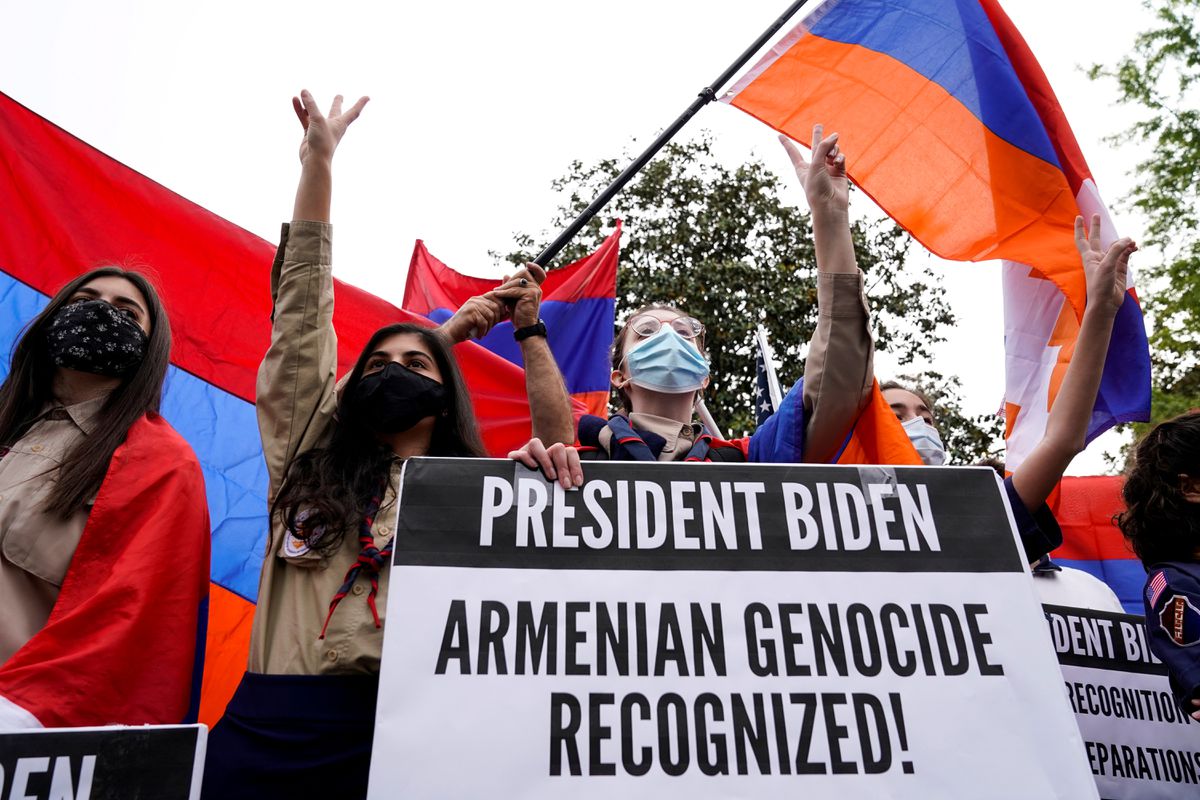 GENOCIDE ACCUSATION AS A FORM OF PUNISHMENT - III
GENOCIDE ACCUSATION AS A FORM OF PUNISHMENT - III
Mehmet Oğuzhan TULUN 27.04.2021
-
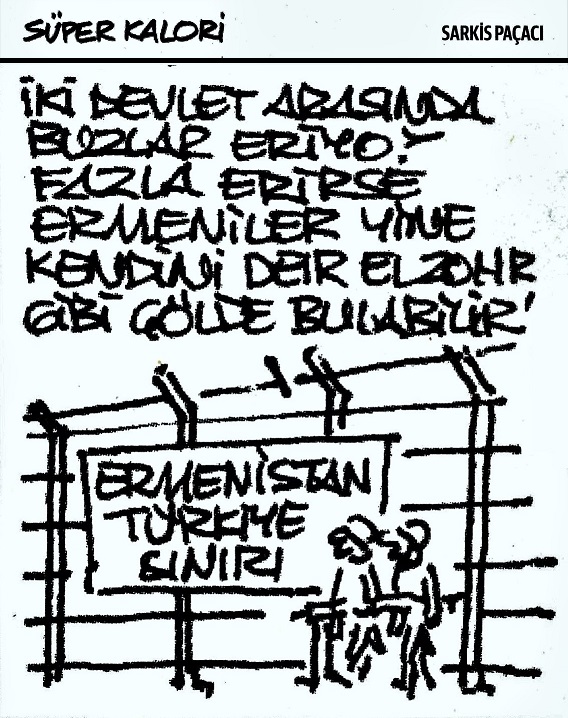 OPPOSITION AGAINST THE TURKEY-ARMENIA NORMALIZATION PROCESS THROUGH THE USE OF CARTOONS
OPPOSITION AGAINST THE TURKEY-ARMENIA NORMALIZATION PROCESS THROUGH THE USE OF CARTOONS
Mehmet Oğuzhan TULUN 13.05.2022 -
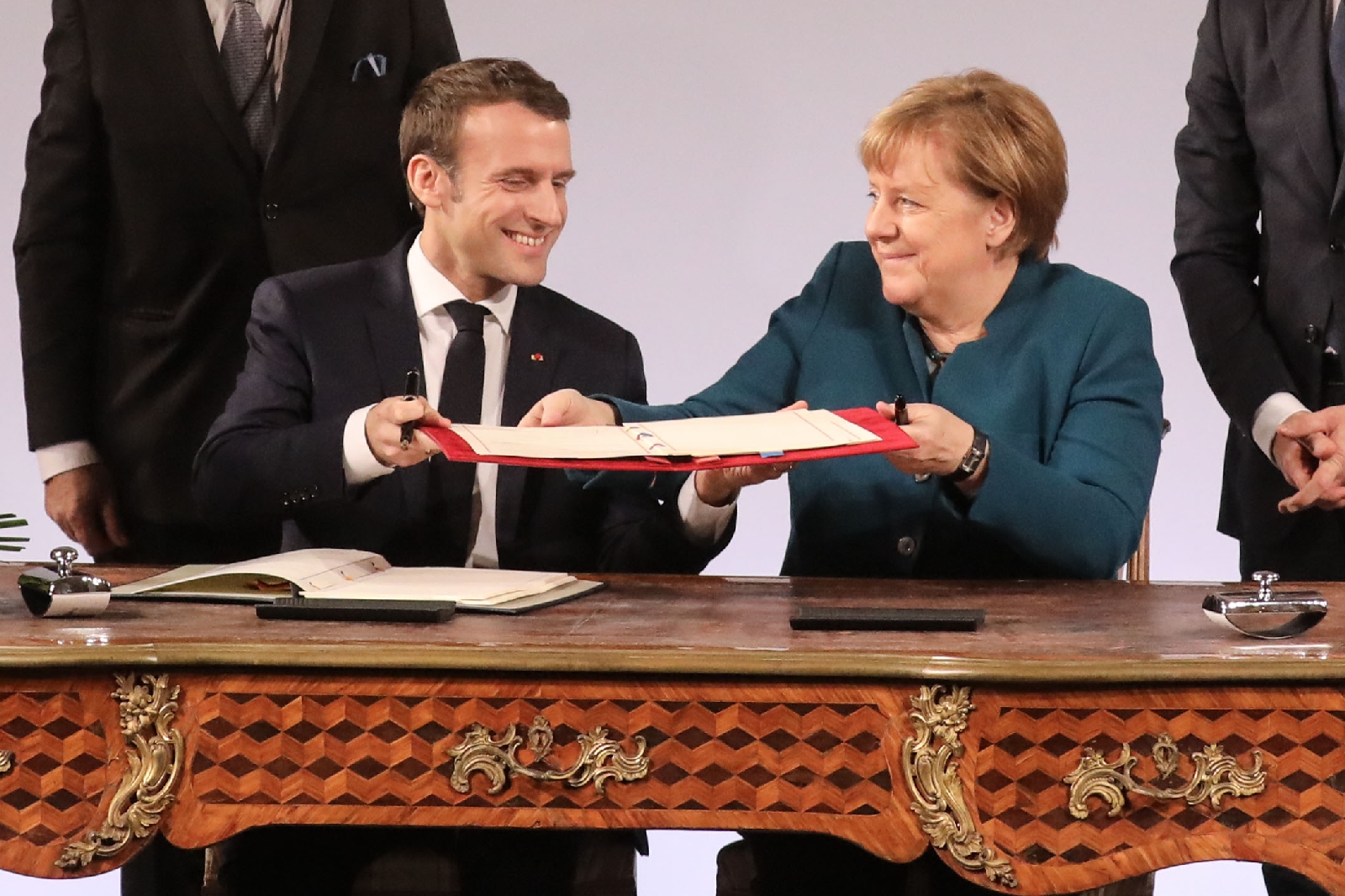 GERMAN-FRENCH JOINT CULTURAL INSTITUTES: TRANSFORMATION OF THE “CIVILIZING” MISSION OF WEST EUROPEAN COLONIALISM
GERMAN-FRENCH JOINT CULTURAL INSTITUTES: TRANSFORMATION OF THE “CIVILIZING” MISSION OF WEST EUROPEAN COLONIALISM
Teoman Ertuğrul TULUN 26.02.2019 -
 TURKISH MIGRANTS AND THEIR CONTRIBUTION TO TECHNOLOGICAL DEVELOPMENT
TURKISH MIGRANTS AND THEIR CONTRIBUTION TO TECHNOLOGICAL DEVELOPMENT
Teoman Ertuğrul TULUN 24.03.2021 -
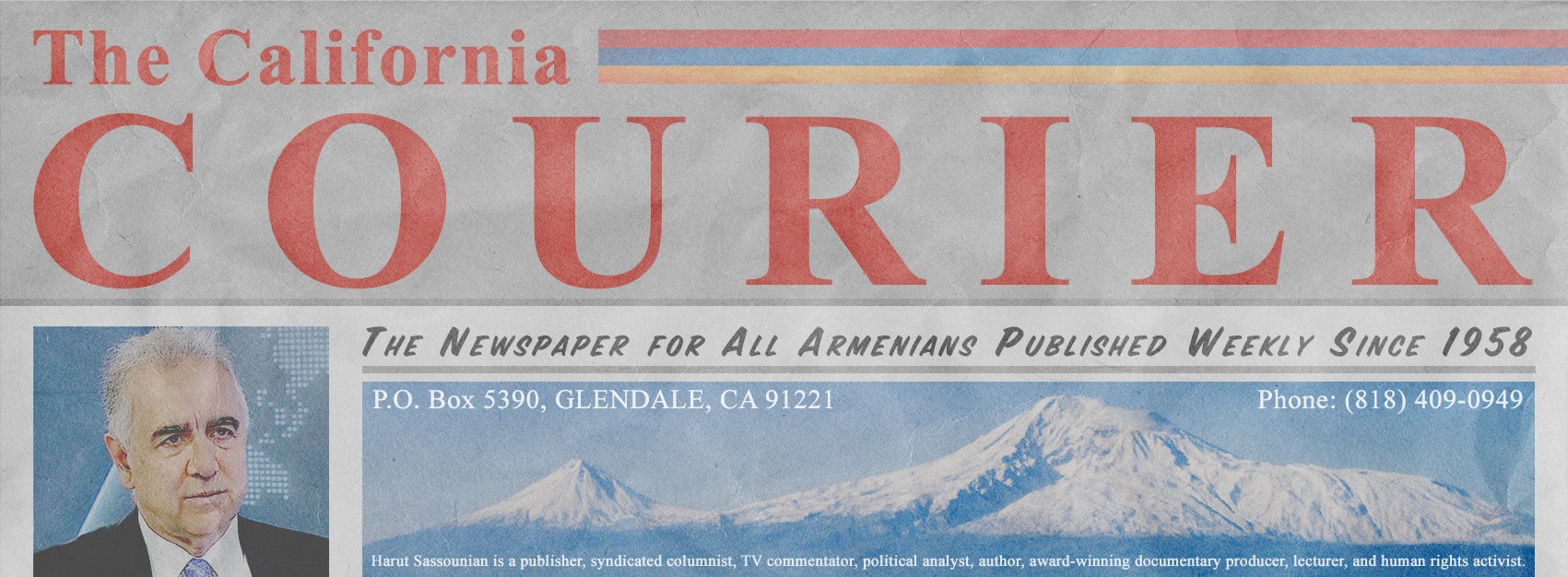 THE NEVER-ENDING DECLARATIONS THAT EXCUSE TERRORIST SASSOUNIAN
THE NEVER-ENDING DECLARATIONS THAT EXCUSE TERRORIST SASSOUNIAN
Hazel ÇAĞAN ELBİR 05.04.2021 -
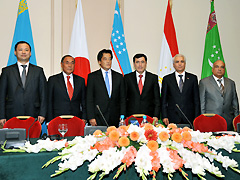 JAPAN’S POLICIES TOWARDS CENTRAL ASIA
JAPAN’S POLICIES TOWARDS CENTRAL ASIA
Özge Nur ÖĞÜTCÜ 31.03.2017
-
25.01.2016
THE ARMENIAN QUESTION - BASIC KNOWLEDGE AND DOCUMENTATION -
12.06.2024
THE TRUTH WILL OUT -
27.03.2023
RADİKAL ERMENİ UNSURLARCA GERÇEKLEŞTİRİLEN MEZALİMLER VE VANDALİZM -
17.03.2023
PATRIOTISM PERVERTED -
23.02.2023
MEN ARE LIKE THAT -
03.02.2023
BAKÜ-TİFLİS-CEYHAN BORU HATTININ YAŞANAN TARİHİ -
16.12.2022
INTERNATIONAL SCHOLARS ON THE EVENTS OF 1915 -
07.12.2022
FAKE PHOTOS AND THE ARMENIAN PROPAGANDA -
07.12.2022
ERMENİ PROPAGANDASI VE SAHTE RESİMLER -
01.01.2022
A Letter From Japan - Strategically Mum: The Silence of the Armenians -
01.01.2022
Japonya'dan Bir Mektup - Stratejik Suskunluk: Ermenilerin Sessizliği -
03.06.2020
Anastas Mikoyan: Confessions of an Armenian Bolshevik -
08.04.2020
Sovyet Sonrası Ukrayna’da Devlet, Toplum ve Siyaset - Değişen Dinamikler, Dönüşen Kimlikler -
12.06.2018
Ermeni Sorunuyla İlgili İngiliz Belgeleri (1912-1923) - British Documents on Armenian Question (1912-1923) -
02.12.2016
Turkish-Russian Academics: A Historical Study on the Caucasus -
01.07.2016
Gürcistan'daki Müslüman Topluluklar: Azınlık Hakları, Kimlik, Siyaset -
10.03.2016
Armenian Diaspora: Diaspora, State and the Imagination of the Republic of Armenia -
24.01.2016
ERMENİ SORUNU - TEMEL BİLGİ VE BELGELER (2. BASKI)
-
AVİM Conference Hall 24.01.2023
CONFERENCE TITLED “HUNGARY’S PERSPECTIVES ON THE TURKIC WORLD"









